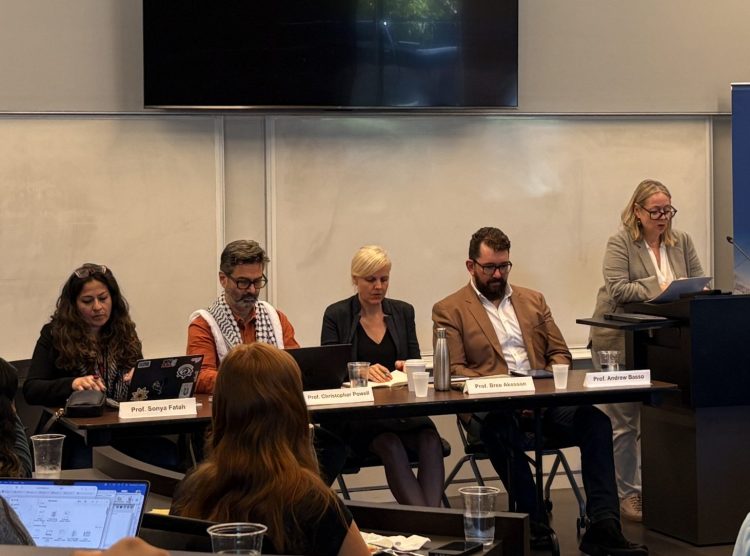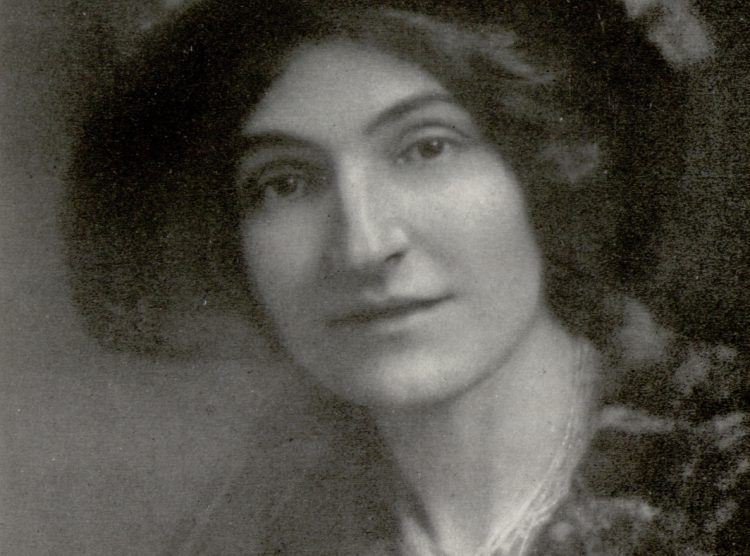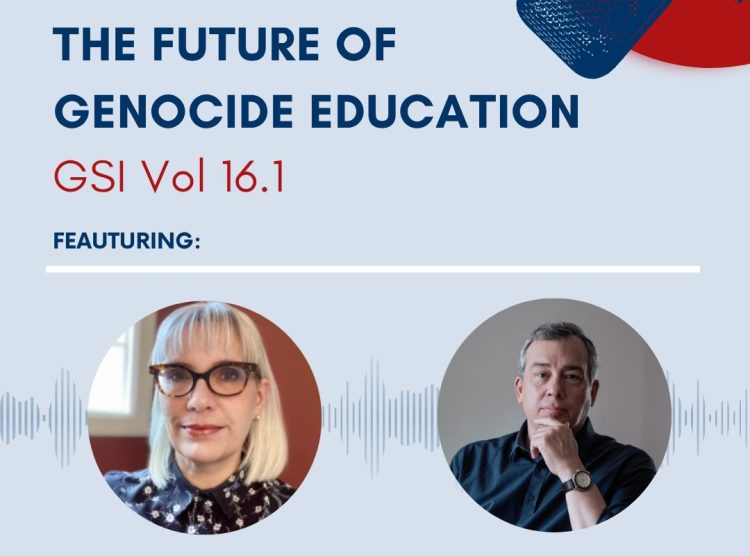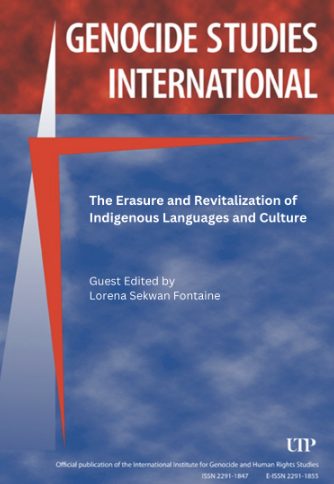Toronto, May 26, 2021: Zoryan Institute and its subsidiary, the International Institute for Genocide and Human Rights Studies, took notice of Professor Taner Akçam’s recent call “…upon everyone, and upon the entire academic profession to take a stand against the climate of terror that is being directed at academics, whose sole task is to unearth the truth…”
The Institute will not get involved in verifying the ‘right of the first night’ statement’s historical accuracy, as it is sufficient to see that Prof. Akçam has already done so in his response to the accusation. His response was directed to those who questioned his credibility regarding the subject of “Kurdish aghas possessed the ‘right of the first night’ [jus primae noctis, or droit de seigneur] with Armenian brides”, that was featured in a piece published in GazetDuvar in April 2021. We will, however, challenge all claims that have been made against Prof. Taner Akçam as an individual and against his reputation as a scholar.
This isn’t the first time that Turkey or its surrogates have attempted to discredit reputable scholars who are vocal about the Armenian Genocide, accusing them with malicious intent, about their “academic dishonesty”. This was evident with Ragıp Zarakolu, a Turkish human rights activist and publisher who has long faced legal harassment for publishing books on the subject in Turkey. There is also the persecution of Orhan Pamuk, a Turkish novelist, screenwriter, academic and recipient of the 2006 Nobel Prize in Literature, who openly referred to the killing of one million Armenians. It is also crucial to acknowledge the tragic case of Hrant Dink, the editor-in-chief of Agos, who was assassinated in 2007 for his work in advocating for Turkish-Armenian reconciliation and human and minority rights in Turkey. Prof. Akçam dedicated the book, The Judgment of Istanbul, to Hrant Dink with these words:
“Hrant Dink, this book, which you wanted very much to be published, is dedicated to you. Even in your eternal silence, your voice is still heard in the struggle to bring truth, justice, and reconciliation to both our peoples.”
As a human rights organization, the Zoryan Institute stands by Prof. Taner Akçam’s commitment to scholarship which is propelled by trust, fairness, respect, and responsibility, in addition to his courage to act in the face of adversity. To become an honest and ethical scholar takes tremendous time and effort, which Akçam is a testament to. He goes further to conduct research in multiple languages and publish numerous authoritative academic books and articles. Akçam does not do the work he does on the Armenian Genocide because he is pro-Armenia or anti-Turkey; he has a larger objective in mind. Perhaps it is best said in his own words, “… we must face our history. And we must do this, not in order to fan the flames of hostility and hatred toward specific individuals or communities, but in order to build a democratic future that is respectful of human rights.”
Professor Roger Smith, the Academic Chair of the Zoryan Institute, has this to say about the situation: “These personal attacks against Prof. Taner Akçam are a classic method of genocide denial, often used when the facts are not on your side.”
The Zoryan Institute challenges all claims made against Prof. Taner Akçam because the Institute is familiar with him and his work. The Zoryan Institute’s relationship with Prof. Akçam’s stems back to a conference held in Yerevan in 1995, co-organized by the Zoryan Institute, titled Problems of Genocide. This was the first large-scale conference to address the comparative analysis of genocide on an international stage. As Prof. Akçam later states in his book, Dialogue Across an International Divide: Essays Towards a Turkish-Armenian Dialogue:
My evolution as a scholar in this field took a major turn in 1995, when, during an International Conference on the Problems of Genocide held in Yerevan, Armenia, the President of the Zoryan Institute, in delivering his speech, made the following closing remarks:
“I want to extend my hand to the people of Turkey, to ask them to remember that though, at one time, the state was led by mass murderers, they also had their Haji Halils, and that it would honor the memory of the latter to acknowledge the overwhelming truth of genocide, to express regrets, so that the healing process may begin for our two peoples. Because, without this healing, ‘mass extermination as a tool of political dominance may become more common in the future.”
…That was such a moving statement for me, that I felt that if the Zoryan Institute was extending its hand, there must be a hand from the other side extended to start the dialogue between our two peoples and, through such dialogue, start the process of healing.
This initial introduction between Taner Akçam and the Zoryan Institute kick-started a long-standing initiative to unearth historical truth based on original archival documentation with the goal of breaking historical barriers to promote dialogue and reconciliation between Armenians and Turks. This would later refer to a collection of peer-reviewed, academic resources known as the Common Body of Knowledge.
For many years, Prof. Akçam worked closely with the Zoryan Institute’s staff, research assistants, executives, translators, specialists, and Board Members, including late Prof. Vahakn Dadrian, the Director of Genocide Research, to publish reputable, authoritative works on the Armenian Genocide. In 2001, the Zoryan Institute published the English translation of Akçam’s book, Dialogue Across an International Divide: Essays Towards a Turkish-Armenian Dialogue. In this collection of essays, Akçam analyzed and interpreted some of the darker aspects of the Armenian Genocide and human behavior and proposed a pathway towards dialogue and reconciliation between the two peoples. As stated by Kevork Bardakjian, “His essays offer us a glimpse into the soul and work of a compassionate human being and a dispassionate scholar, endowed with a deep sense of social awareness and responsibility.”
The Zoryan Institute-sponsored book, From Empire to Republic: Turkish Nationalism and The Armenian Genocide by Taner Akçam, published in 2004, discusses western political policies towards Turkey, and represents the first serious scholarly attempt to understand the Armenian Genocide from a perpetrator rather than victim perspective. In 2006, the Zoryan Institute supported the publication of Akçam’s renowned book, A Shameful Act, detailing and explaining the Armenian Genocide in depth. This book was dedicated to the eight members of the Zoryan Institute President’s family who were kept safe for more than six months during the Armenian Genocide by the righteous, pious Muslim Turk, Haji Halil.
Perhaps one of the most significant contributions to the Institute’s Common Body of Knowledge is the book edited by Taner Akçam and Vahakn Dadrian, titled Judgment at Istanbul: The Armenian Genocide Trials. This book is a compilation and analysis of the documentation of the trial proceedings of the Takvim-ı Vekâyi, the official Ottoman Government record of the Turkish Military Tribunals concerning the crimes committed against the Armenians during World War I. This book is often referenced as the most comprehensive and analytical work to address the Armenian Genocide from the legal-criminal perspective to date.
In addition to his several well-respected books, Taner Akçam was also a longtime faculty member of the Institute’s renowned annual Genocide and Human Rights University Program (GHRUP) hosted in partnership with the University of Toronto History Department. As a professor of Turkish origin, Akçam co-lectured the unit on the Armenian Genocide between the years of 2002-2008. He provided a stimulating learning environment and engaged students of all backgrounds with open discourse on the subject with candor, transparency, truth and vigor. In recent years, a former student of Professors Akçam and Dadrian, the well-regarded Turkish scholar Ugur Ungor, taught the same unit on the Armenian Genocide, as well as the unit on the Theory of Genocide.
In closing, the Zoryan Institute endorses how Professor Akcam has replied to the accusation “…I did not mention a single fact that was not clearly found in the historical sources. But we must not forget to respect the truth that will preserve us and set us free. In the end, we must grow accustomed to discussing information such as that which I have found in the historical sources—as well as other, even more difficult-to-accept…”
Zoryan Institute, a non-profit organization, serves the cause of scholarship and public awareness relating to issues of universal human rights, genocide, and diaspora-homeland relations. This is done through the systematic continued efforts of scholars and specialists using a comparative and multidisciplinary approach and in accordance with the highest academic standards.




